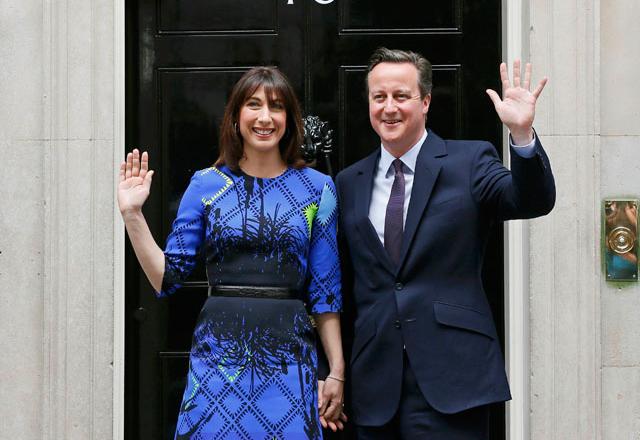You are here
Horse-trading begins as UK poll enters final straight
By AFP - May 05,2015 - Last updated at May 05,2015

London — Britain's political leaders on Tuesday began a final push for votes ahead of this week's knife-edge election, even as they prepared for the likelihood of protracted coalition talks once polls close.
Prime Minister David Cameron, whose Conservatives are neck and neck with the opposition Labour Party in the opinion polls, kicked off a 36-hour tour of the country that will see him campaign through the night.
He urged voters to give his party on Thursday a clear mandate to govern or risk years of "back-room deals" and "bribes" as Labour sought to form a government with the support of the smaller Scottish National Party (SNP).
But Cameron himself faces an uphill struggle to win a majority in the 650-seat House of Commons and would most likely also need to turn to smaller parties to stay in power.
Both Cameron and Labour leader Ed Miliband — who has put the state-run National Health Service at the centre of the last two days of campaigning — have insisted they are aiming for a parliamentary majority.
"Lots of people are undecided and it's those that we need to convince in the closing hours," the prime minister told supporters in Twickenham, southwest London.
In Bedford in central England, Miliband insisted he was still "fighting for every vote".
In reality, all sides are planning how they will seize the initiative on Friday morning after an uncertain result.
Holding balance of power
Liberal Democrat leader Nick Clegg, whose centrist party has been the junior partner in Cameron's Tory-led coalition for the past five years, is keeping open the possibility of backing either the Conservatives or Labour.
"If the party with the greatest mandate from the British people, if they wanted to reach out to the Liberal Democrats, of course I would listen," Clegg told BBC radio from Land's End at the southernmost tip of Britain.
His party could lose half its 57 members of parliament, however, and he himself is fighting to keep his seat.
The SNP is more likely to hold the balance of power as it is on course to win more than 50 of the 59 seats in Scotland, despite losing last year's independence referendum.
SNP leader Nicola Sturgeon has vowed to block the Conservatives but has warned that her party would try to enforce its anti-austerity agenda on a Labour government.
Miliband meanwhile is reportedly planning to reach out to Labour's traditional trade union backers after the election to seek support for the party's options for taking power.
"The battle for victory at the general election has morphed into a fight to define the consequences of defeat," wrote one commentator in The Times newspaper.
Tactical voting
The BBC's poll of polls puts the Conservatives and Labour at 34 per cent and 33 per cent respectively — a deadlock that has barely changed since the start of the campaign.
With little set to change in the final 48 hours, many voters are considering voting tactically.
A new ICM poll for The Guardian newspaper suggests that Conservative supporters in Clegg's constituency in Sheffield, northern England, are planning to vote for him to stop him losing his seat to Labour.
Several national newspapers also carried guides on Tuesday for where voters could support a candidate they dislike to stop another they dislike even more from being elected.
Conservative-supporting tabloid The Sun, Britain's top-selling newspaper, urged voters considering supporting the anti-EU, anti-immigration UK Independence Party (UKIP) to vote Tory to avoid letting in Labour.
Nigel Farage's UKIP, which currently has two members of parliament, is polling in third place at 14 per cent but is unlikely to win more than a couple of seats.
The Green Party, which has one MP, is polling fifth after the Lib Dems on about 5 per cent.
Conservative finance minister George Osborne warned meanwhile that an indecisive election result could be "deeply unstable" for Britain.
He told the Financial Times that Britain's reputation for economic competence and stability could be destroyed in minutes if Labour wins.
Some analysts point to the uncertainty over Britain's position in the European Union if the Conservatives win, as Cameron has promised a referendum on membership by 2017.
Related Articles
Britain awoke to a new political landscape on Saturday after a shock election victory for Prime Minister David Cameron that decapitated the opposition and bolstered secessionists in Scotland.
Opposition leader Ed Miliband insisted he was ready to be Britain's next prime minister as he launched a manifesto Monday designed to boost his party's reputation on the economy before the May 7 election.
Campaigning in Britain's closest election in decades began on Monday after Prime Minister David Cameron met Queen Elizabeth to tell her parliament had been dissolved, teeing up a fraught battle to govern a $2.8 trillion economy.

















